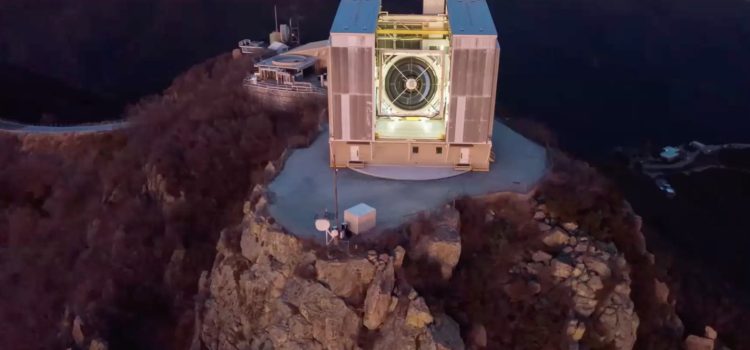
Video transcript of meeting
- MMT Observatory – Kali Salmas, Queue Observer
- Mount Hopkins, 55km south of Tucson, Arizona
- Originally had six 1.8m mirrors, 4.5m collecting area
- Now a single 6.5m mirror with 3 secondaries: f/5, f/9, f/15 (adaptive)
- Fred Lawrence Whipple Observatory facility on the mountain
- Instrumentation
- Binospec – wide-field opitcal spectrograph
- Hectochelle/Hectospec – 300 fibre optic spectroscope, robotically reconfigured
- MMIRS – Infrared spectroscopy, nitrogen cooled
- Magellan and MMT share instrument designs
- Operating Staff
- Telescope Operator – 3
- Queue Observer – 3
- Data acquisition
- Weather, tracking, seeing, turbulence, lenticular cloud formation
- 7.5-12 hours observing time
- Moon phase
- Target Considerations
- Both manual and automated queue scheduler
- Sensor being used
- Magnitude range: 11-26
- Moon phase
- Setup on Target – telescope operator and queue observer work together
- Taking Data – calibration frames, guide stars, check data, add notes, move to next target
- Q&A
- Astro-tourism in Northern Arizona – Dave Payne
- Flagstaff area
- Barringer Crater – Largest meteorite at 150′ across
- Lowell Observatory
- Many domes
- Original observatory built in 1894
- Historic 24″ Refractor
- Privately financed by Percival Lowell to map Mars
- History of discoveries and innovations by other astronomers at the site
- Clyde Tombaugh – discovered Pluto with a 12″ telescope
- 5m Discovery telescope – currently being used, has 5 instruments
- Recurrent T Coronae Borealis – David Lee david@victoria.rasc.ca
- Should increase in brightness from Mag 10 to 2 by September
- NASA Blog T Coronae Borealis
- Recurrent Nova T CrB AAVSO Webinar
- Chris Gainor
- Chandra X-ray space telescope may go dark due to impending budget cuts – 25 years of work done. Save Chandra
- David Lane, past president of RASC has died. He was the author of Earth Centred Universe planetarium software, operated a popular robotic telescope from his home in Nova Scotia, and was on staff at St. Mary’s University until his retirement.
There is no Astronomy Cafe on April 1 due to Easter holiday. The April 8 meeting will be online only, since many members will be away to observe the Total Solar Eclipse from the path of Totality.
Astronomy Cafe – March 25, 2024
